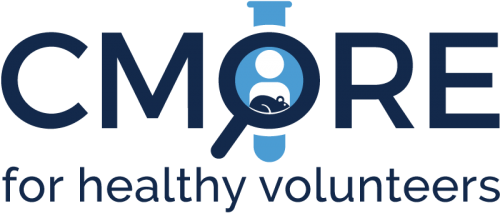CMORE for Healthy Volunteers
Overview
The Comparative Model Organism Research Ethics (CMORE) for Healthy Volunteers project addresses the need for a novel evidence-based approach to the protection of Phase I healthy volunteers. Phase I clinical trials test the safety of investigational drugs that eventually may be used in affected patients. These trials have distinctive features that may undermine the validity of data gathered and lead to ethics and policy gaps in protecting healthy volunteers. One such feature is that healthy volunteers must stay in the clinic during the trial where they are given a prescribed diet and experience other restrictions. Another feature of Phase I trials is they rely on repeat volunteers who do not mirror the health or sociodemographic characteristics of typical patient populations. Given these unique features of Phase I trials, we contend that valuable insights may be gained through a comparison with non-human animal “model organism” research. We will investigate this comparison and generate new ethics and policy guidance that addresses the problems of risk, subject selection, validity, and translation that are particular to healthy volunteer trials.
CMORE for Healthy Volunteers has 3 primary aims:
1 Describe and normatively evaluate the limitations of current research oversight in Phase I trials by analyzing data on healthy volunteers’ perceptions of clinical trials, including through a non-human animal research “model organism” lens;
2 Compare the ways in which Phase I researchers, non-human animal researchers, bioethicists and policymakers, regulatory and research oversight staff, and healthy volunteers conceptualize: a.) similarities and differences between healthy volunteer and non-human animal research and b.) ethical, policy, and translational science problems particular to each arena; and
3 Develop ethics and policy guidance for Phase I healthy volunteer research that a.) extrapolates from the model organism framework in Specific Aims 1 and 2, b.) is attentive to the structural features of Phase I research, and c.) is vetted by expert stakeholders.
This project is a renewal of a previous NIH (R01) longitudinal study of 180 healthy volunteers (the HealthyVOICES Project). To address the new aims, we will analyze the current grant’s dataset to identify ethics and policy gaps and generate empirically-grounded points of comparison between Phase I trials and animal research (Aim 1). We will also conduct 90 interviews and 300 surveys with expert informants from Phase I healthy volunteer research, animal studies, and bioethics and regulatory perspectives about the key ethical, policy, and translational issues at stake (Aim 2). Finally, we will develop ethics and policy guidance to protect Phase I subjects and improve the translational science pipeline. Four stakeholder forums across the US will provide a vetting process for our draft guidance and initiate dissemination for our final recommendations (Aim 3). We expect the contribution of the proposed project to be significant because it will generate ethics and policy guidance that can provide advances in healthy volunteer welfare and the translational efficacy of Phase I trials.
CMORE for Healthy Volunteers is funded by a grant from the National Institute of General Medical Sciences of the U.S. National Institutes of Health.
